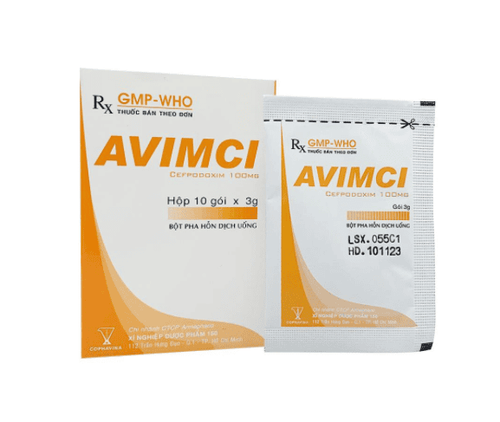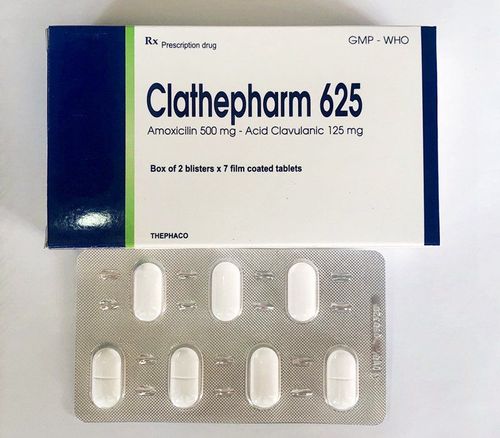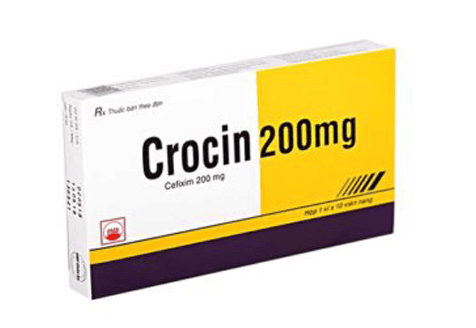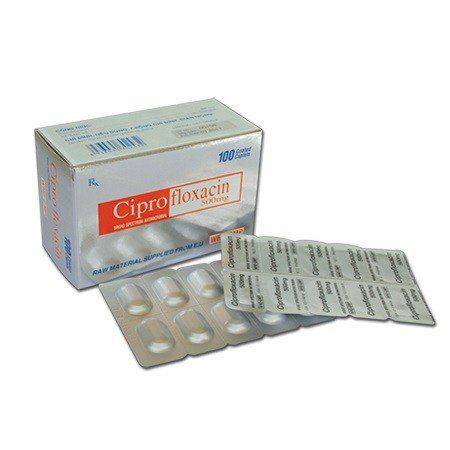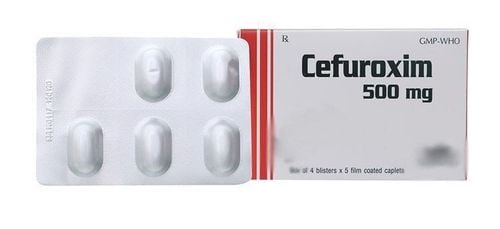This is an automatically translated article.
Cefovidi belongs to the group of antibiotics. With the active ingredient Cefotaxime, Cefovidi is used in the treatment of a number of bacterial conditions, infections and prevention of infections after surgery.
1. What is Cefovidi?
Cefovidi belongs to the group of drugs used to treat parasites, fungi, viruses and bacteria with the main ingredient being Cefotaxime. Cefotaxime is a 3rd generation cephalosporin antibiotic with a broad spectrum of antibacterial activity.Cefovidi is prepared as a powder for injection and is indicated for the treatment of the following cases:
Meningitis, pericarditis, bone and joint infections, blood infections caused by Gram-positive cocci and Gram-negative bacteria. Lower respiratory tract infections, intra-abdominal infections, urinary tract and gynecological infections (including gonorrhea), skin and soft tissue infections. Prophylaxis of postoperative infections.
2. How to use and dose Cefovidi
Cefovidi is administered by injection, which can be intravenous or intramuscular. Drug administration on patients is carried out by doctors or medical staff.
Dosage of Cefovidi in adults depends on the purpose of treatment as follows:
Treatment of uncomplicated infections: 1g intravenously or intramuscularly every 12 hours. Treatment of meningitis, severe infections: Intravenous or intramuscular dose of 2g every 6-8 hours. Treatment of uncomplicated gonorrhea: Intramuscular injection of a single dose of 1g. Prophylaxis and treatment of postoperative infections: 30 minutes before surgery, 1g injection. Dosage of Cefovidi in children depends on the following subjects:
Children from 2 months old or under 12 years old: Intravenous or intramuscular dose 50mg - 150mg/kg body weight/day, divided dose into 3-4 times for injection during the day. Newborns over 1 week old: 75 - 150mg/kg body weight/day intravenously, divided into 3 doses for injection during the day. Premature infants and infants under 1 week of age: 50mg/kg body weight/day intravenously, divided into 2 doses for injection during the day. For patients with renal failure with a ClCr less than 10mL, the dose of Cefovidi should be reduced to half that of an adult.
Cefovidi is only used in the case of a doctor's prescription. When there is an overdose, the patient's family should notify the doctor immediately for timely and appropriate treatment, avoiding danger to health and life.
Note, Cefovidi is an antibiotic, so the treatment should be carried out continuously, not interrupted because it will cause antibiotic resistance, thereby reducing the effectiveness of treatment.
3. Side effects of Cefovidi
Cefovidi medicine can cause some unwanted side effects such as fever, itchy rash, abdominal pain, nausea, vomiting, diarrhea, dizziness, vision loss, headache, heart rhythm disturbances, indicators hematologic changes, increased eosinophil levels.
For Cefovidi, after injecting the drug, if the patient has strange or unusual symptoms, or experiences side effects of the drug, the family should monitor and immediately notify the medical staff for treatment.
4. Some notes when using Cefovidi
Do not use Cefovidi in people with hypersensitivity to the ingredients of the drug, pregnant and lactating women. People who have a history of allergy to penicillin or have a close relative who is allergic. Patients with renal impairment should be cautious when taking Cefovidi. Limit activities to drive or operate machinery because Cefovidi can cause headaches, impaired vision. Cefovidi drugs can interact with some drugs such as Azlocillin, Fosfomycin, Probenecid, ... if used together and reduce the effect or increase the toxicity of the drug. To limit and avoid the effects of drug interactions, before taking Cefovidi, patients need to tell their doctor/pharmacist about their medical history as well as medications (including prescription and non-prescription drugs). functional foods, herbs have been used. In summary, the use of Cefovidi is to treat respiratory, urinary - genital infections, skin and soft tissue infections, blood infections, bones and joints, heart, meninges... In addition, the drug also used in the prevention of infection in surgical patients.
Please dial HOTLINE for more information or register for an appointment HERE. Download MyVinmec app to make appointments faster and to manage your bookings easily.




